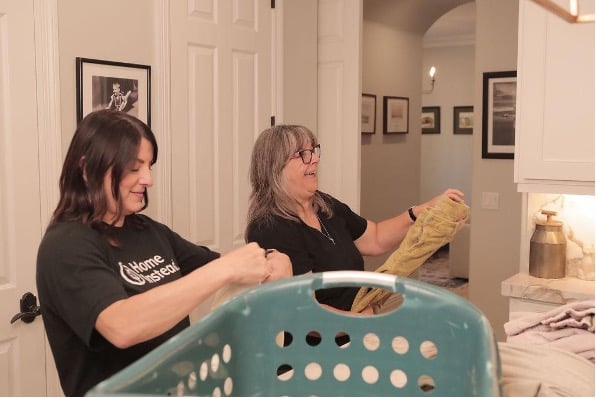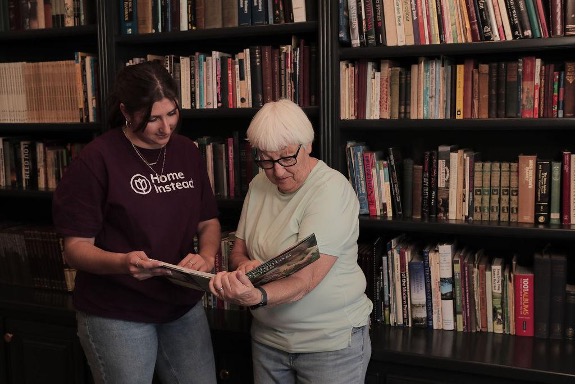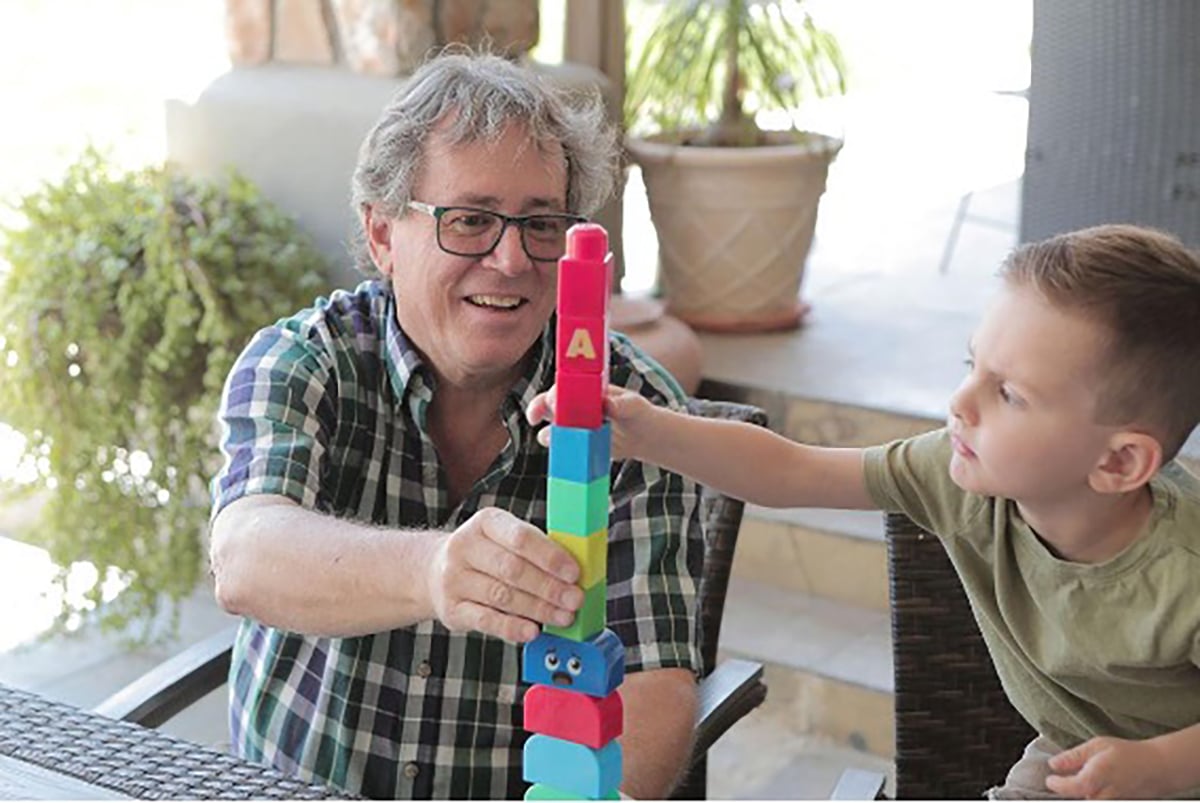It’s not always glamorous, but one of the most critical aspects of caregiving is ensuring your loved one’s restroom routine remains consistent. Although this subject is a bit taboo, regulating this step improves every other part of your family’s life.
Here at Home Instead, we want to help demystify the topic of managing incontinence in your loved one with dementia. Through these tips, everyone involved with this essential part of a daily routine will feel much more comfortable.
Before implementing any tips, make sure to understand incontinence in your loved one
There are two types of incontinence: urinary and fecal. Both types involve the involuntary leakage from either the bowel or bladder, causing a sense of discomfort both physically and emotionally.
If you notice your loved one regularly experiencing symptoms of incontinence, the first step is to consult your doctor. Although this can be a normal part of the aging process, it’s important to confirm there are no other pre-existing conditions, such as medications, causing incontinence as a side effect.
From there, your doctor may help with treatment individually or refer your loved one to a continence specialist. Regardless of which avenue, they will offer specific medication and holistic options to help make your loved one feel more comfortable.
Encourage regular restroom breaks
Restroom breaks are the key to ensuring incontinence remains regular, but it can be difficult for your loved one’s body to notify them of cues. By setting simple reminders for both you and your loved one, the entire household can remain alert to a routine.

Play around with reminders that work best for your family. Depending on how independent your loved one is, sticky notes in common areas or digital reminders may be the ticket to the mind and body connection. If your loved one regularly uses an electronic device, setting a cue every few hours will keep the restroom top of mind.
If you as a caregiver have to take a more active role in encouragement, figure out a system that works best for you. There are many apps you can use to track the regular restroom breaks of your loved one or notify you of when they may need to go. At Home Instead, we utilize the Honor Care platform, which allows for complete transparency between our Care Pros and families on every step in your loved one’s daily routine.
Try loose clothing that’s easy to take on and off
Clothing can be a difficult aspect of trying to use the restroom in a calm and relaxed manner. To avoid this issue altogether, swap out your loved one’s tighter or more uncomfortable clothing for looser options. Above all, consider stretchy or drawstring waistbands.
Limit liquids in the evening
Liquids in the evening can be the main cause for disturbed sleep and potential accidents during the night. Although you shouldn’t completely reject liquids if your loved one requests it, try to limit them starting around 6-7 pm. This leaves enough room to remain comfortable, but also sleep restfully throughout the night.
Take note of your loved one’s physical cues
As your loved one’s primary caregiver, you pick up on both their physical and nonverbal cues more than anyone else. If you notice your loved one displaying any discomfort, agitation, or shakiness, calmly recommend them to try using the restroom in a way that still remains respectful and not too forced.

No matter how old your loved one is, or how developed their dementia has become, keeping their sense of independence and bodily autonomy is essential. When it comes to trying to predict their physical cues, still allow room for your loved one to recognize their own body without becoming too forceful.
Ensuring navigating the restroom at night is simple
Oftentimes, using the restroom at night can cause your loved one with dementia a sense of anxiety. If you notice any discombobulation during the evening, create a path with nightlights to illuminate the walk to the restroom. We highly recommend choosing motion sensored lights, so their room stays dark until needed.
Consider adult incontinence products
Incontinence products may seem a bit taboo, but they are incredibly helpful to both you as a caregiver and your loved one. If you’re unsure of where to start when navigating adult incontinence products, we highly recommend talking to your senior’s trusted doctors who are up to speed on their medical history.

If you need any help navigating the complex issue of your loved one’s incontinence, please don’t hesitate to reach out to Home Instead for guidance. We understand this topic may be difficult to tackle and we want to be there with you every step of the way.



